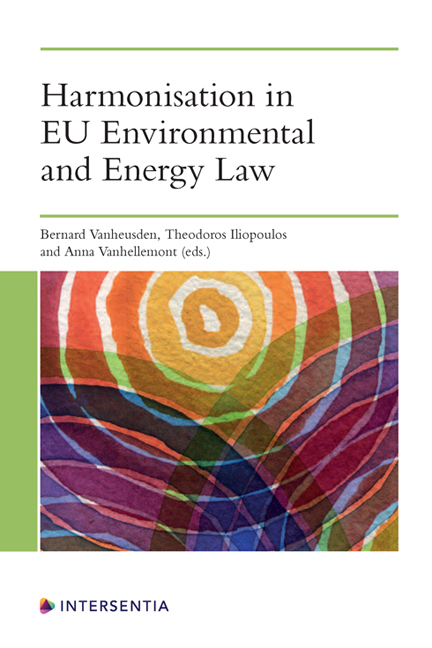Harmonising Oversight of the EU Low-Carbon Power Transition: With an Eye to Sustainability, Energy Justice and Security
Published online by Cambridge University Press: 26 May 2022
Summary
HARMONISATION AND THE EU LOW-CARBON POWER TRANSITION
In early 2015, the European Commission (the Commission) announced the establishment of the Energy Union. The realisation of this project will go far beyond the creation of competitive common markets for electricity and natural gas, which, from the late 1990s onwards, has been the aim of EU regulatory efforts in the energy sector. The description of the Energy Union hints at the great variety of policy fields that are involved. The Commission wants to pursue an ‘ambitious’ climate policy, while the EU energy sector must be able to supply ‘households and businesses’ with ‘secure, sustainable, competitive and affordable energy’.
The legislation that implements the Energy Union reflects this much more comprehensive approach, articulated in the five dimensions of EU energy and climate governance – energy security, internal energy market, energy efficiency, decarbonisation, as well as the compound of research, innovation and competitiveness. Thus, the Energy Union seeks to integrate aspects of energy, market, environmental and social policies, foreshadowing a gradual harmonisation of related legislation, including oversight mechanisms.
Since the inclusion of environmental and social concerns in the Energy Union exceeds the scope of past EU legislation on electricity, the Member States ‘harmonisation task becomes extensive and multi-focused. The extent to which legislation in this regard will be harmonised will have a major impact on the character of the Energy Union. The outcome of the Member States’ harmonisation efforts will largely determine how EU citizens perceive this continent-wide project. Societal consensus and support will be vital, mainly because this unprecedented socio-economic transformation will eventually re-define the basis of the Union’s economy. EU climate goals and actions are still evolving. The Union aims to achieve climate neutrality by 2050. The legislation to implement the Energy Union prescribes how the Member States should embark on this transformation. A timely decarbonisation of electricity generation is crucial for the further progress of this process.
However, the establishment of the Energy Union is also influenced by external developments and actors, such as international law and global business practices.
- Type
- Chapter
- Information
- Harmonisation in EU Environmental and Energy Law , pp. 207 - 236Publisher: IntersentiaPrint publication year: 2022



